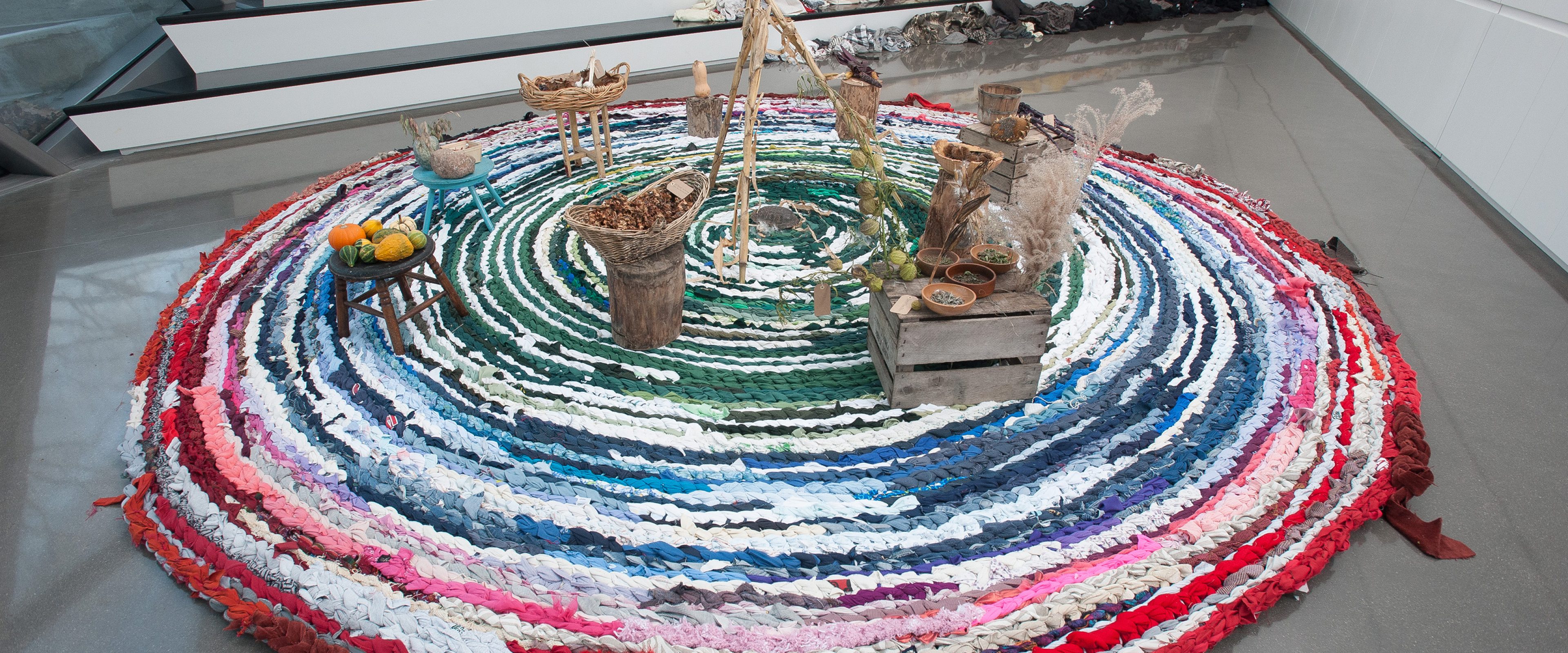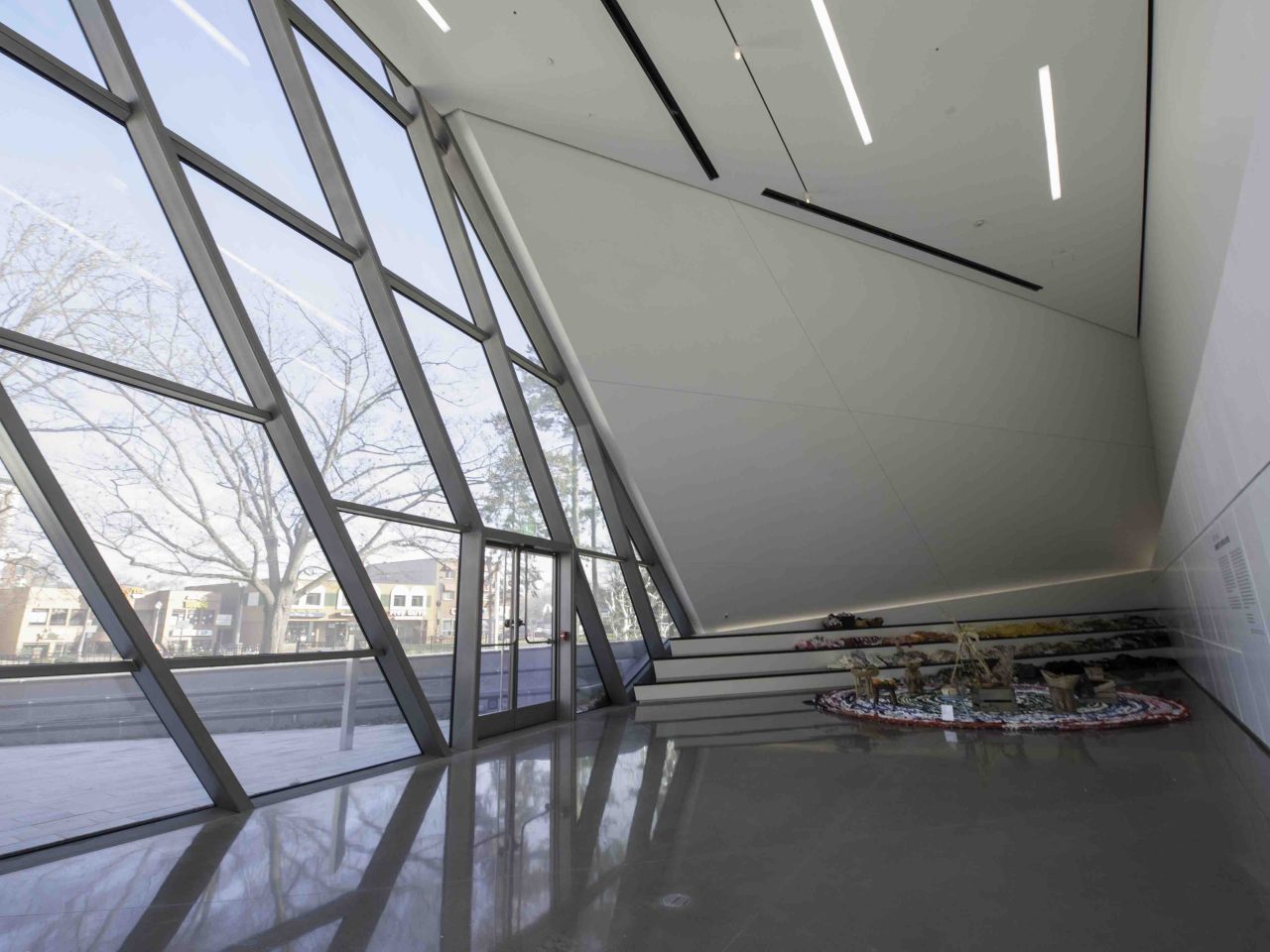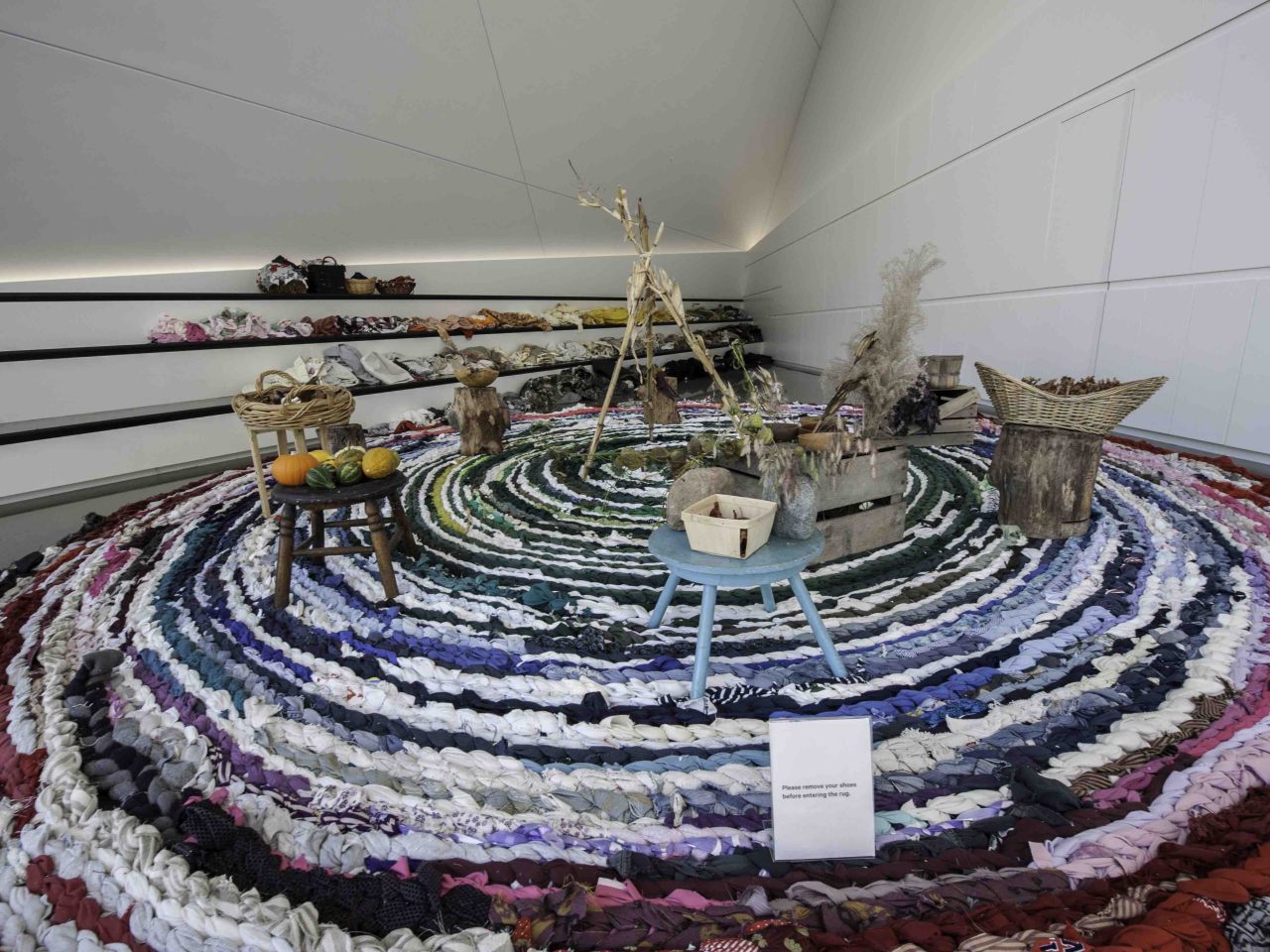Fritz Haeg: Domestic Integrities is organized by the Eli and Edythe Broad Art Museum at Michigan State University and curated by Alison Gass, Curator of Contemporary Art.
About the Exhibition
Los Angeles-based artist Fritz Haeg (b. 1969) is renowned for his commitment to collaborative, environmentally engaged, and educational art production. His previous projects, which have taken place around the world, include edible gardens, public gatherings, urban parades, and architectural interventions. These works have consistently been tinged with elements of social- or civic-mindedness, and most of them have been essentially temporary or ephemeral. Domestic Integrities, one of the artist’s first forays into the production of permanent art objects, retains all the conceptual elements that marked his previous work. Here, Haeg explores the patterns and rituals of local domestic landscapes, mapping the ways objects alter the conditions of being in a space and revealing the ways in which sharing local resources can create collective experiences.
Conceived as a platform for dialogue, communal activity, and the presentation and exchange of homemade goods, Domestic Integrities is centered on a spiral-stitched circular rug that will continue to grow over the course of the installation. Made of used and discarded textiles, including clothing, athletic gear, and bed linens donated or disposed of by local participants, it was produced as part of a community crochet project the artist organized with student groups and other volunteers in the months leading up to the opening of this museum. Haeg is intrigued with the open dialogues and discussions that develop organically over the course of such collective efforts. Now that the rug has been installed within the museum, it will continue to expand through subsequent crocheting sessions, becoming an indexical record of the community that helped create it as visitors and collaborating student groups bring to it items they have cooked or produced using elements harvested or found in the area: flowers, pickled vegetables, canned fruit, baked bread, woven textiles, and the like. Some of these offerings may remain on the rug for weeks; others will be removed or replaced daily. Haeg’s project not only transforms the dynamics of the museum space but also challenges the traditional experience of being a museum-goer. In this installation visitors are invited to take off their shoes and make themselves at home on the rug— to sit down and inspect, touch, taste, and smell that day’s various Domestic Integrities.


